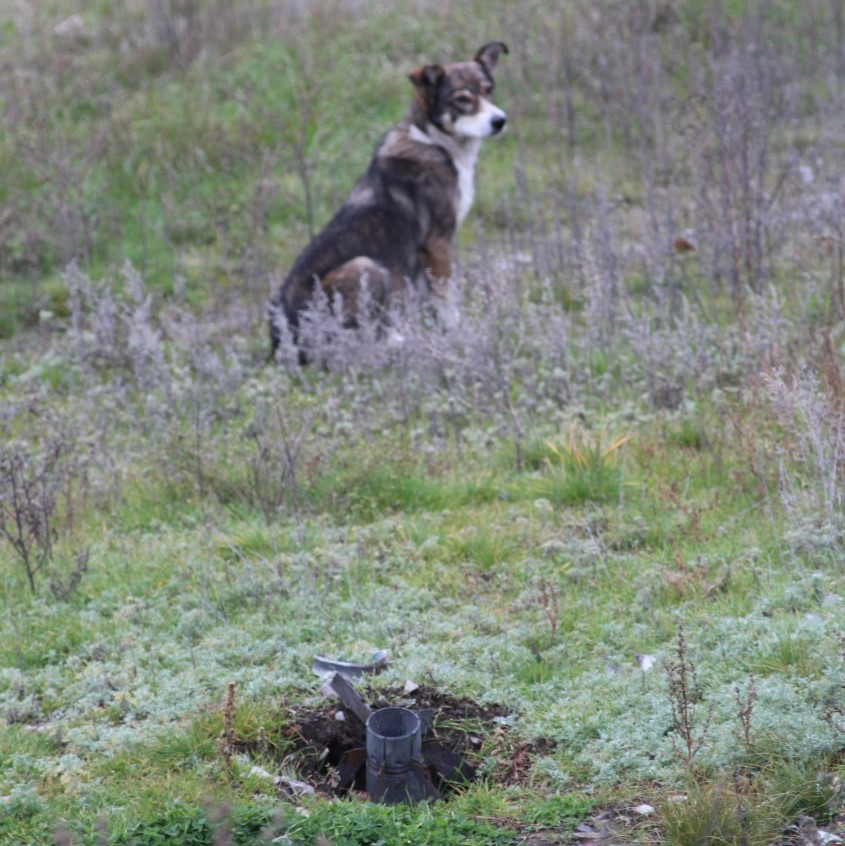Stolen washing machines, phosphorus bombs and abandoned Russian corpses

Two villages in the Kharkiv Region named “Ukrainian” (Cherkaski) Tyshki and “Russian” (Ruski) Tyshki stand side by side, but the latter name evoked no sympathy among the invaders. On the afternoon of 24 February, Russian forces entered the two settlements and over the next half year both suffered, “Russian” Tyshki even worse than its neighbour.
For over two months the villages were a base from which the city of Kharkiv, 20 kms away, was constantly shelled. Then, around 6 May, the Russian forces withdrew northwards across the river and started to shell the Tyshki settlements instead. For four months they were on the frontline.

78 missiles in a row were fired into Kharkiv (Alla Korzurina)
“I couldn’t understand how a person in his right mind could do such a thing! What did I ever do to Russia?” Alla Korzurina points out the damage and destruction in her native village. “We had wonderful pine trees here; the air was so fresh. They set fire to them all! I’ve five grandsons. Where will they play now? What will they return to?”

The pine grove next to Dzherelnaya Street stands sad and blackened. Sappers move slowly between the burned and broken trees.
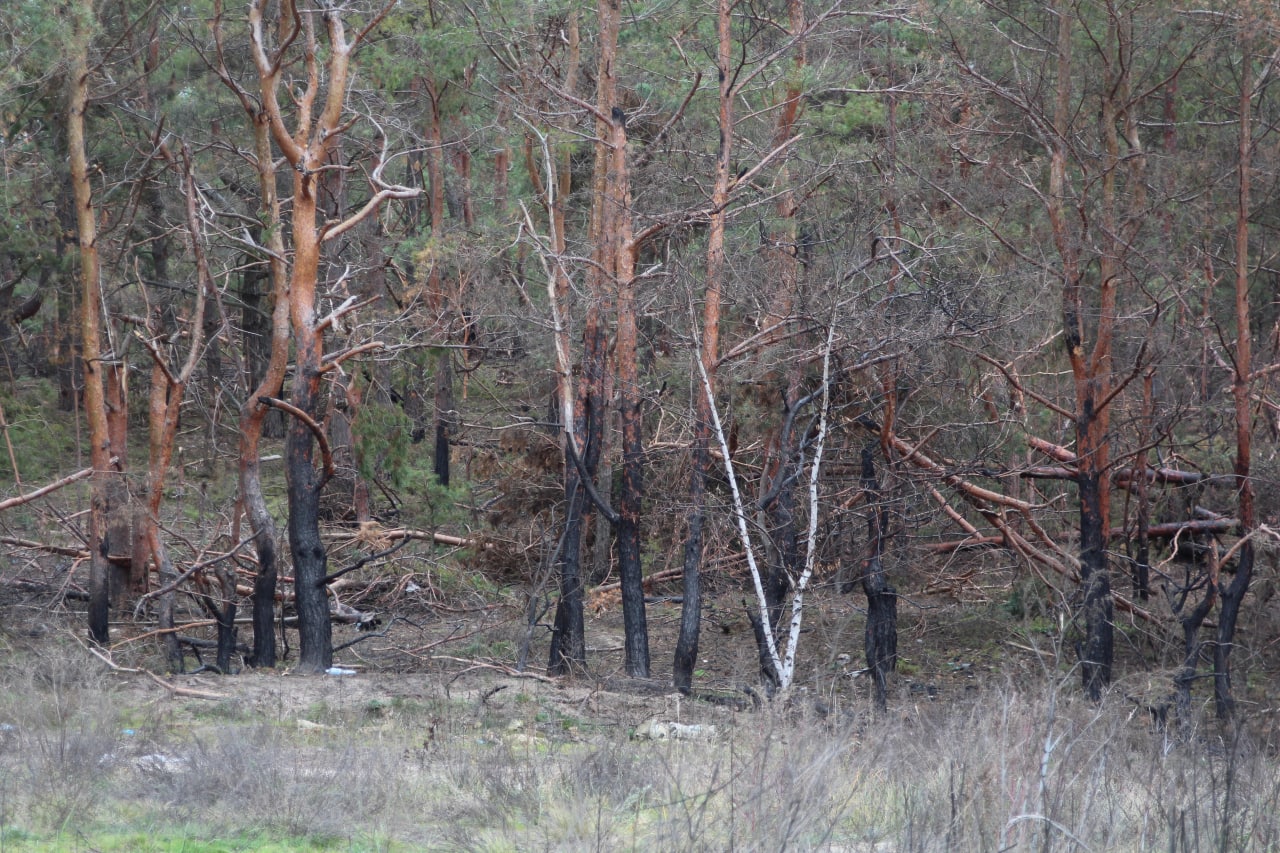
Walking around a pit filled with building rubble (these are craters left by missiles), Alla leads us to her home, disfigured by shelling.
“Howitzers stood here – large, covered vehicles. They loaded Grad missile launchers here and fired them,” Alla shows their location. “The cannon stood next to the garden. Excavators dug pits and these enormous muzzles began firing at Kharkiv.
“I counted the shots. The Grad launcher fired 78 times without a break … The cannon fired 43 times in a row … What are you firing at?! I asked. There are people and children there.”

Q. Which Russian units were based in Tyshki?
“At first, they were young lads. ‘I’m from Petersburg’, one said, ‘and I’m 19 years old. My brother is in Kharkiv and they’re making me shoot into the city.’ Then there were fighters from the ‘Luhansk people’s republic’ and Chechnya.
“Two times they carried out a search, looking for something in our houses, cellars and attics.”
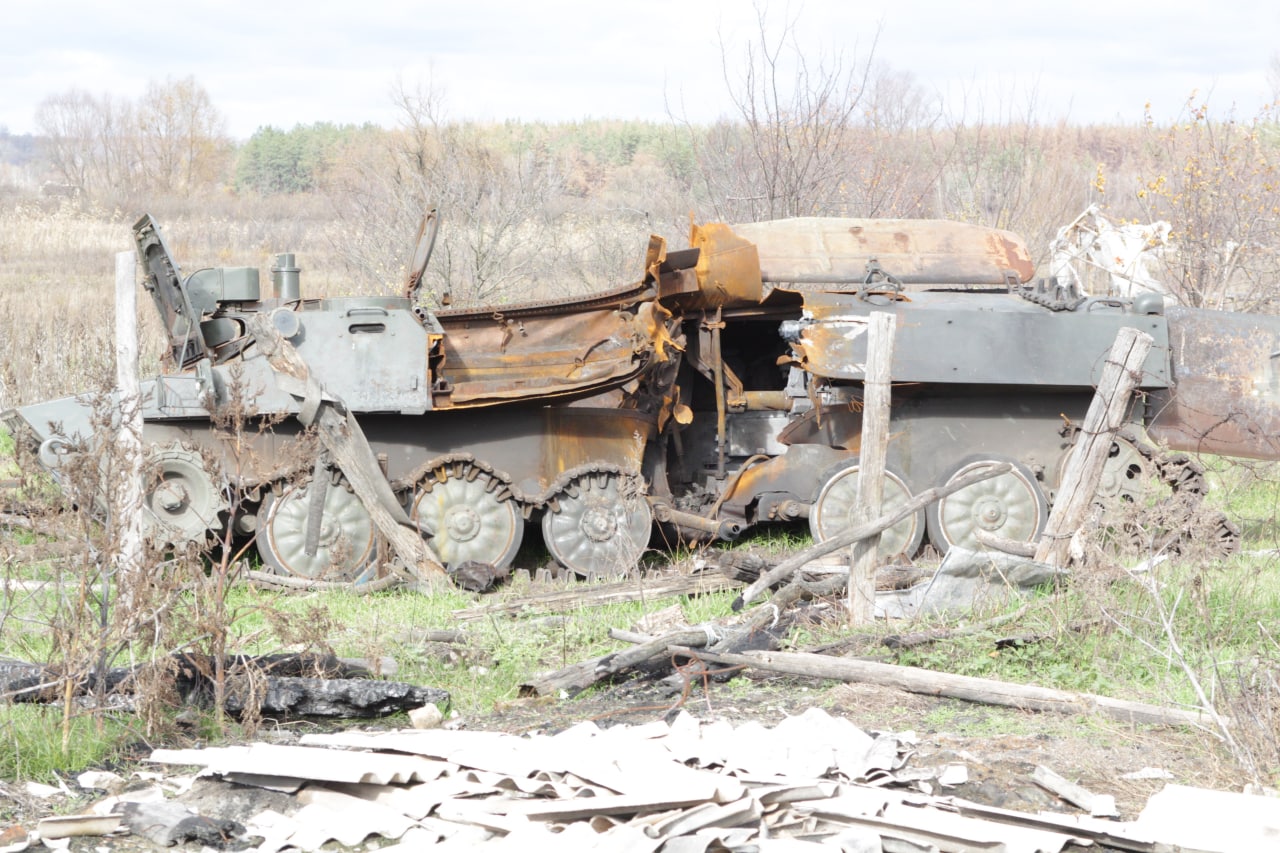
In early May the Russian soldiers withdrew but they did not go far, just north of the river.
“The invaders told us it would all be over by 9 May [Victory Day]. We waited and (idiot that I am) I believed them. On 6 May we got up and no one was left. On 7 May Ukrainian soldiers entered the village: ‘We’re from Ternopil,’ they said, ‘electric lighting will soon be back on’. We were so happy. Everything had finished, we thought. But it had not yet begun. They were from a Ukrainian intelligence unit and went somewhere else,” recalls Korzurina.
“On 9 May, in the afternoon, the shelling began. We spent two days with our in-laws in their cellar. Day and night it continued. We couldn’t even go out to feed the hens. As soon as we opened a door they were firing again. The Russians had moved across the river, where you see the pines. They dug in there and fired at us.
“The Ukrainian territorial defence force moved us out of the village. We left on 12 May and our in-laws followed on 14 May. They saw their house destroyed one night. The Russians were firing from helicopters … There was hardly no one left here but they were shooting at anyone who moved. I can’t get my head around it.”
After withdrawing, Alla says, Russian soldiers shelled the places where they had been based, the local school in particular. At that moment there were no Ukrainian forces in the village.
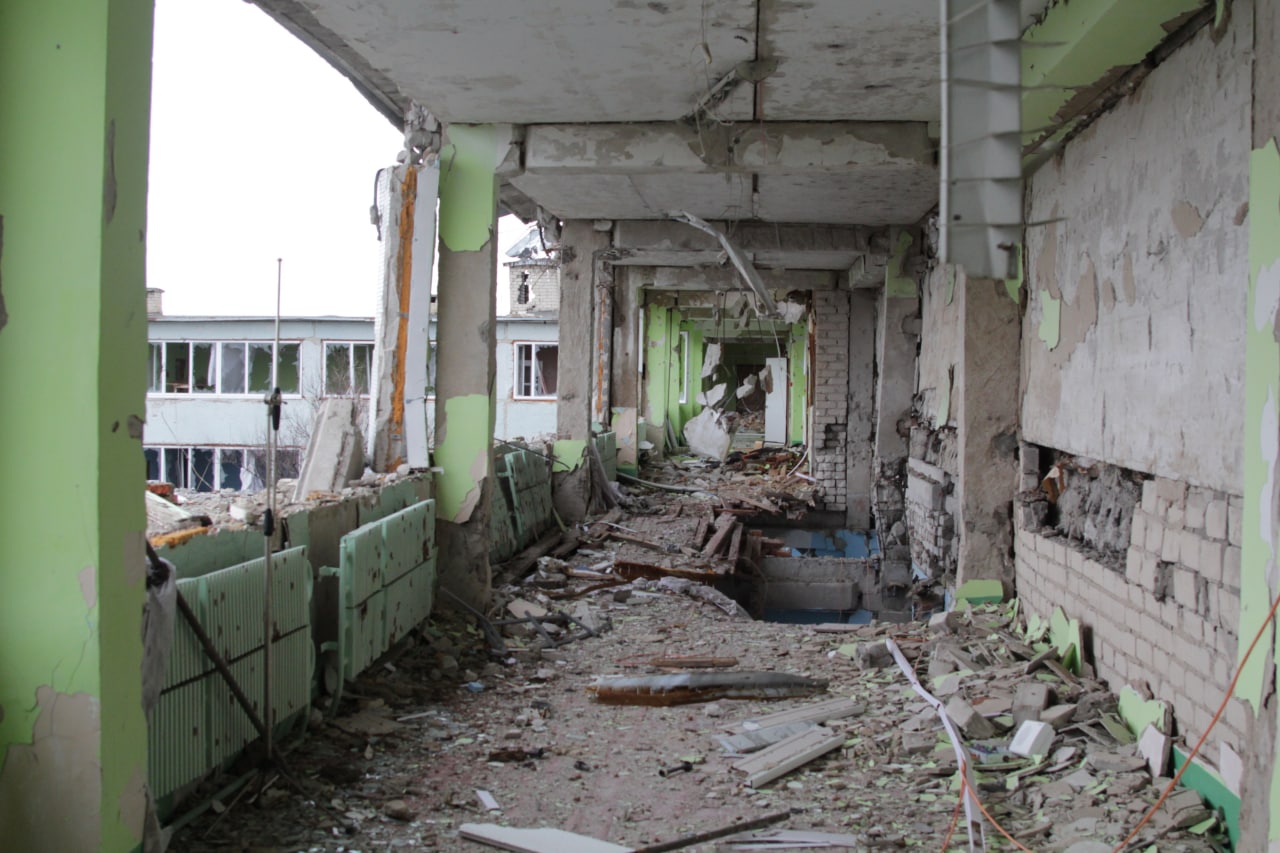
When they left, the Russians didn’t even take the corpses of their own soldiers.
“They tossed the bodies of their own dead soldiers here among the pines … The stench was awful! My sister’s husband went there to get something from my home. He said you couldn’t breathe the air.”
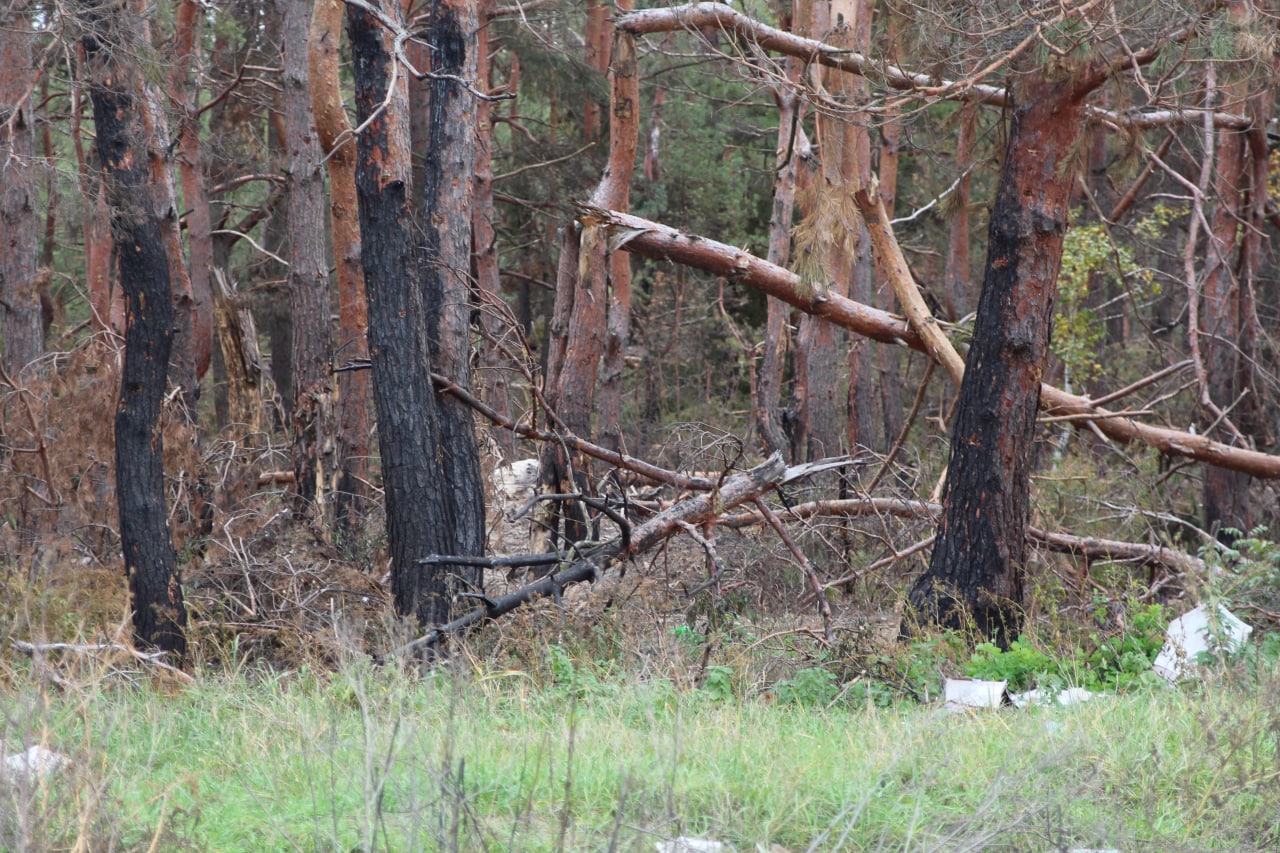
They dumped stolen washing machines in my yard (Sergiy Serdiuk)
The invaders displayed an odd liking for certain kinds of domestic appliance. Scattered next to Sergiy Serdiuk’s house are dozens of frames and drums from washing machines, like the remains of dead animals.
“They stole these washing machines all over the village,” says Sergiy, “and dumped them here.”
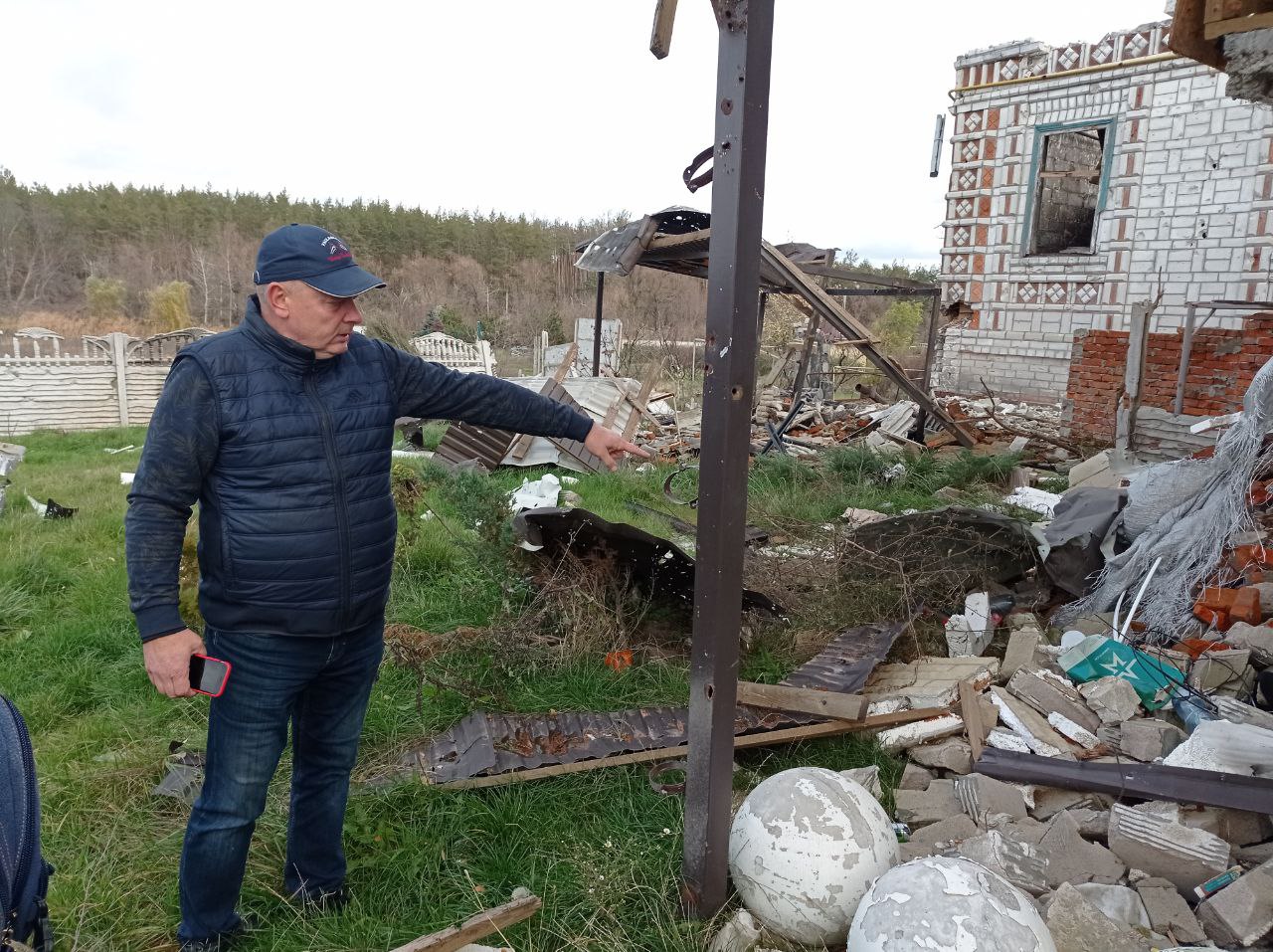
He shows me a photo on his phone. His home looked very comfortable: no doubt that’s why the Russian invaders chose it as their base.
“We left almost at once and in March they stormed into the place. One lot of orcs lived there to begin with, then they left, and others replaced them,” says Serdiuk. “They carried off everything – refrigerators, washing machines, the lot! All our belongings, the bath, the beds and everything from the garage. Neighbours say that two large trucks drove up and carted off everything they could. They sorted the stolen washing machines here and stacked them onto trucks and took them away. Then a shell hit the house and a pile of drums was all that remained of the washing machines they didn’t take.”
Apart from smashed-up washing machines, the Russian soldiers left behind filth, empty tin cans and their dry rations. By chance, Sergiy came across the documents confirming ownership of his house on a pile of rubbish outside the fence. The sappers checked the yard and what remains of his house but warned him not to go out into the garden.

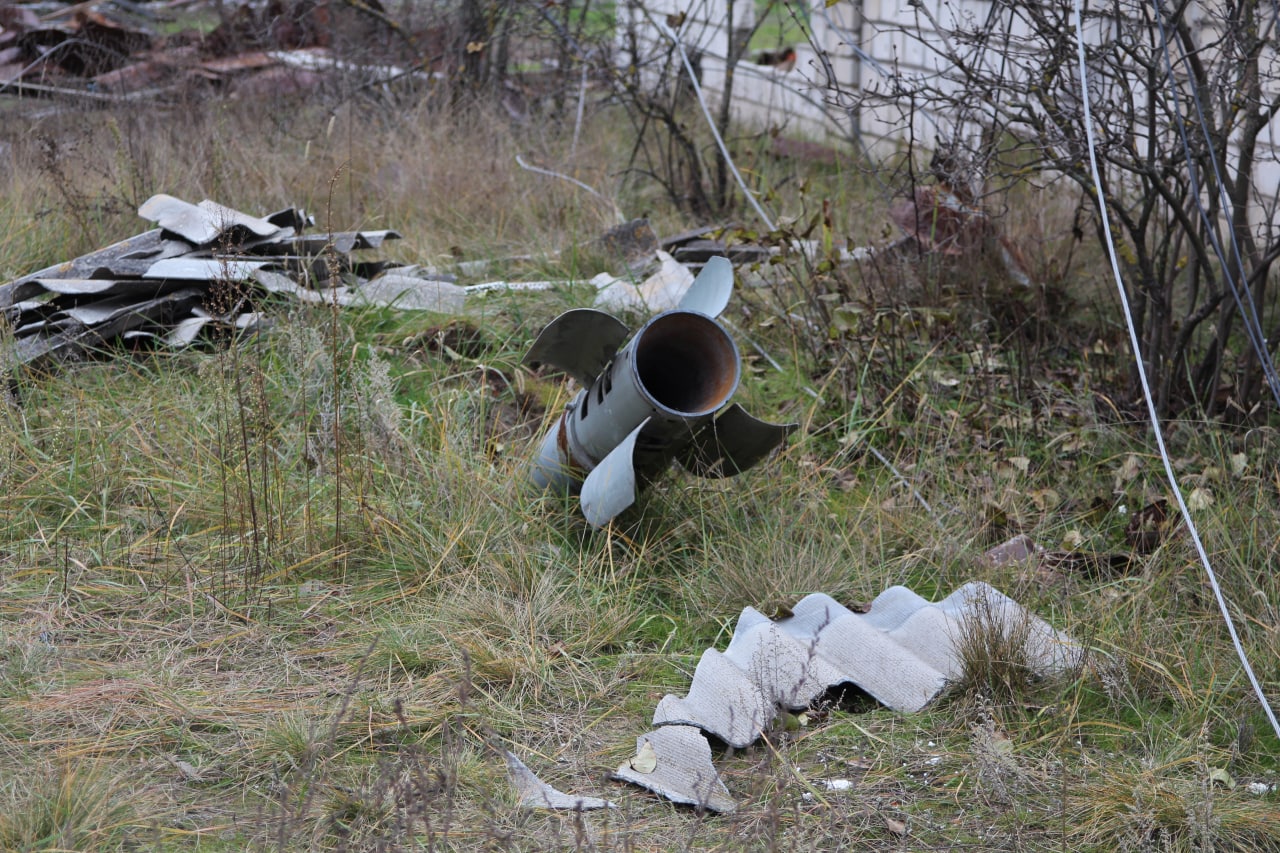
When Ukrainian troops moved into the village, they also chose Sergiy’s cellar as their base. The house was on the edge of the settlement and had a good view of the place to which the invaders had withdrawn. It became some kind of outpost for Ukraine’s soldiers, and a very dangerous one: shells frequently landed there and a motor vehicle carrying military medical personnel was set alight in the garage …
On 1 September they fired phosphorus bombs at us (Victor Simyachko)
“On 24 February, my wife and I heard explosions. Tanks were shelling the village and that day columns of Russian military vehicles drove through Tyshki. A great many Russian soldiers moved into the school,” says farmer Victor Simyachko. “There was hardly any damage to the village then. But when the Russians withdrew, they began shelling us heavily in early May.”
By training an engineer, Victor Simyachko has been a farmer for the past 37 years. He does everything himself. He can repair the equipment and built a shed for his tractor.
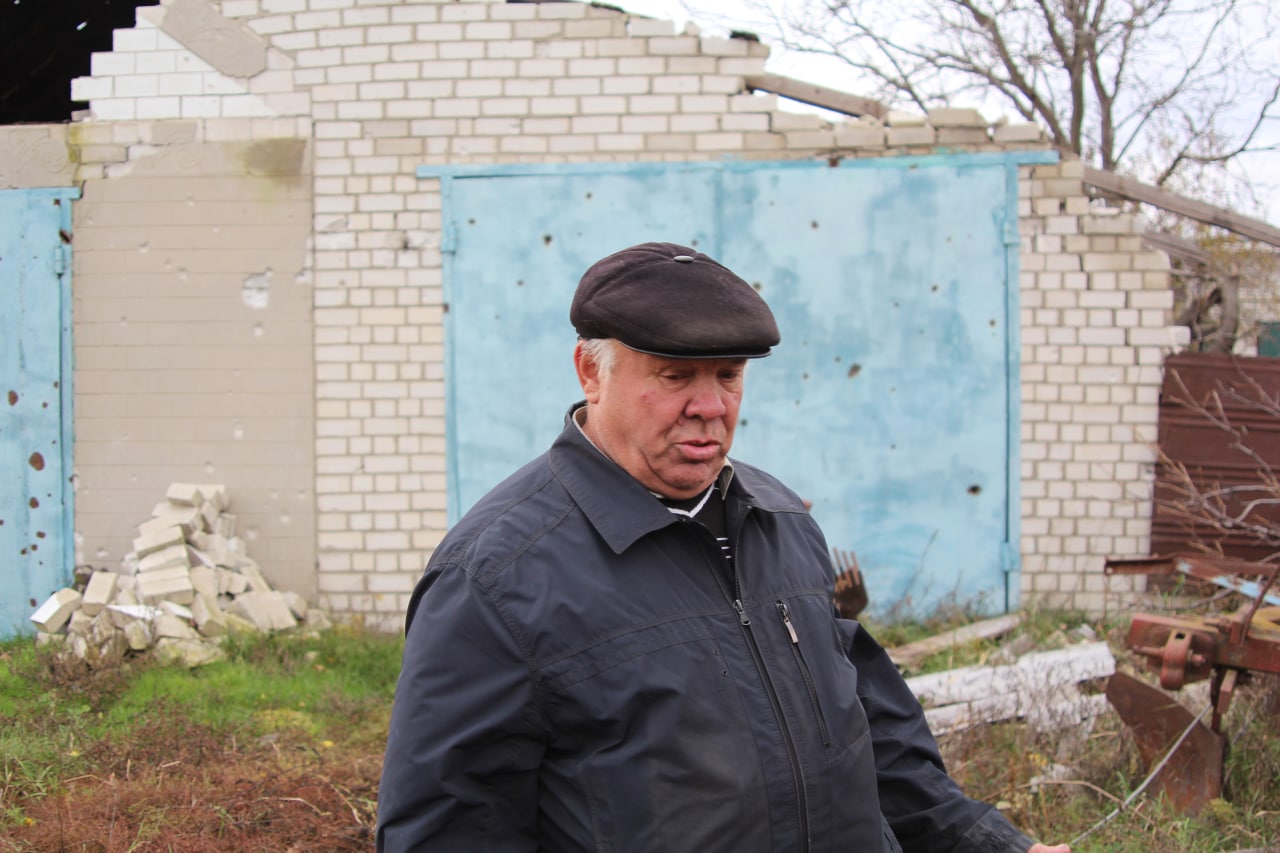
“Our farm was not big. Only me and my wife worked there. But we made a profit, and I paid our taxes.”
During the occupation Russian soldiers stole Simyachko’s plough.
“On 24 April, at Easter, they drove up on a tractor, attached the plough and off they went. My equipment is old: they took a look, saw nothing worth stealing and drove off with my new disc plough.”
To protect his motor vehicle from the invaders Victor disabled it by taking out the battery and hiding it.
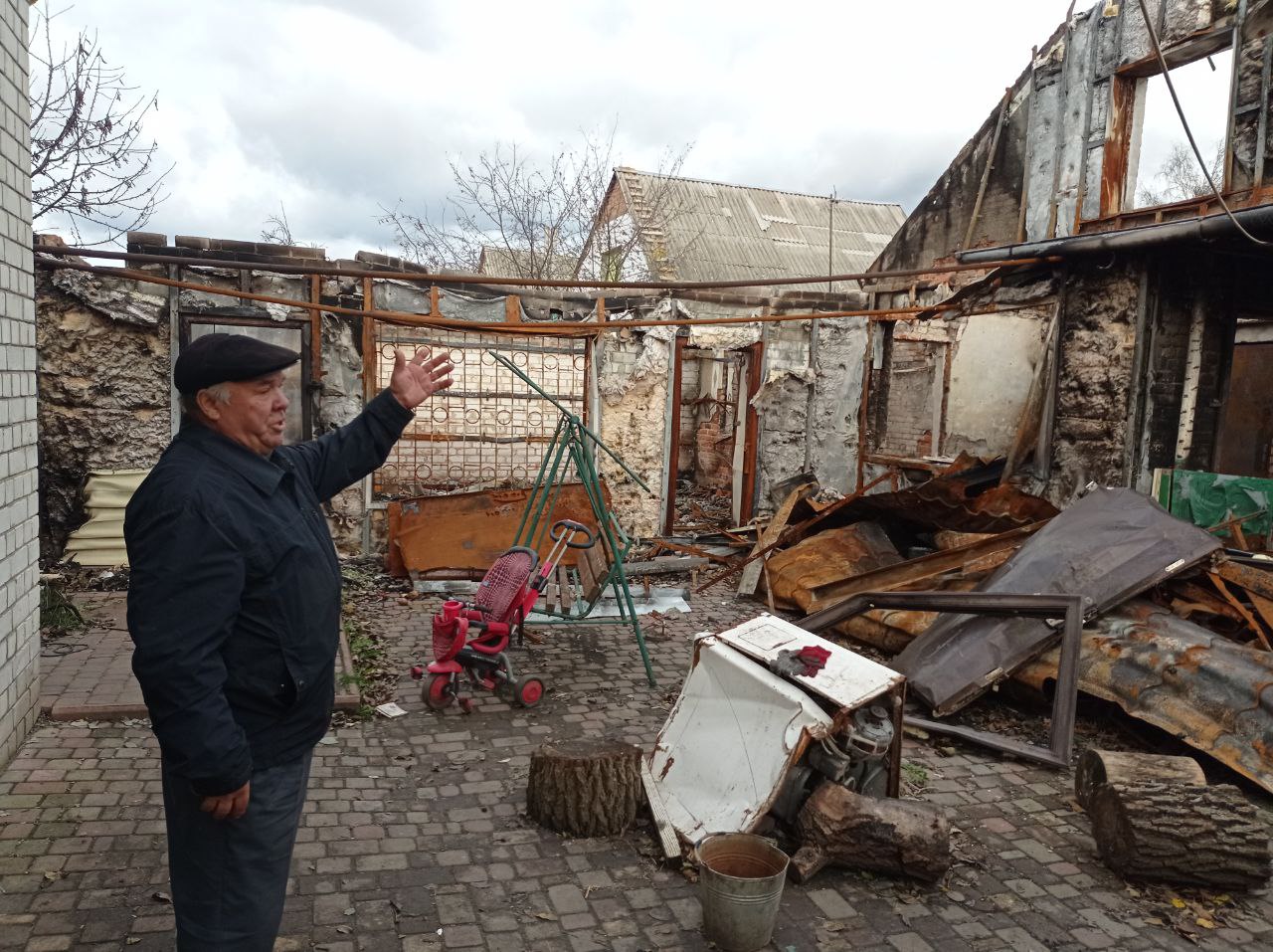
Today little remains of Victor’s proudly named “Falcon” farm. The animals died, the vehicles were wrecked, and the high-quality seed was spoiled; the house burned down in September after phosphorus bombs were fired into Tyshki.
“On 17 June, my wife and I were hiding in the cellar. Sixteen shells landed in the garden and the yard. Then one landed next to the house. We crawled out and saw that the seed-store had collapsed, and the fences were flattened. The windows of the house had been blown out. After that, the shelling stopped,” says Victor.
“I think a spotter adjusted the range. Sixteen shells missed but when one hit us, they stopped firing at once. Then they started again and fired often. The barn where we keep the pigs caught fire. 110 egg-laying chickens also died.
“At midnight on 1 September [just before the Ukrainian counter-attack] the Russians fired phosphorus bombs at us, and the second floor of our house caught fire. ‘Why’s it light outside?’ my wife asked. We ran out of the house and saw that the second storey was alight.
“I have a generator. I turned it on and attached a hose … but the wind was too strong, and the house burned down.”
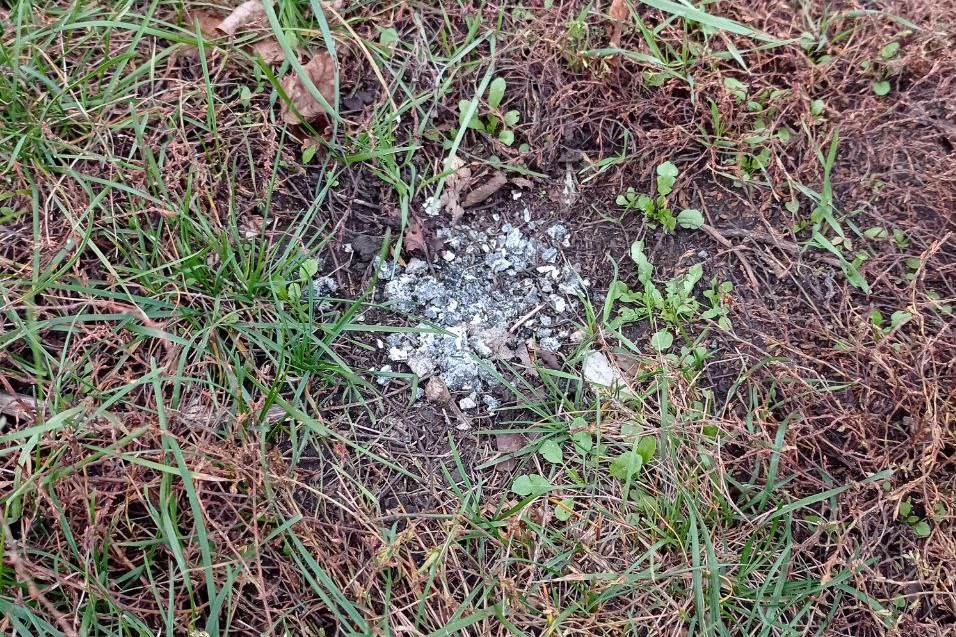
Now Victor lives in Kharkiv with his daughter. Each day he returns to the farm, mending and restoring what can be saved. He patches the holes in his shot-up tractor and covers the roof of the barn where some of his stock of high-quality sunflower seeds remains with surviving corrugated sheets. A pile of barley, dampened under the open skies and rains, has already put out green shoots.
